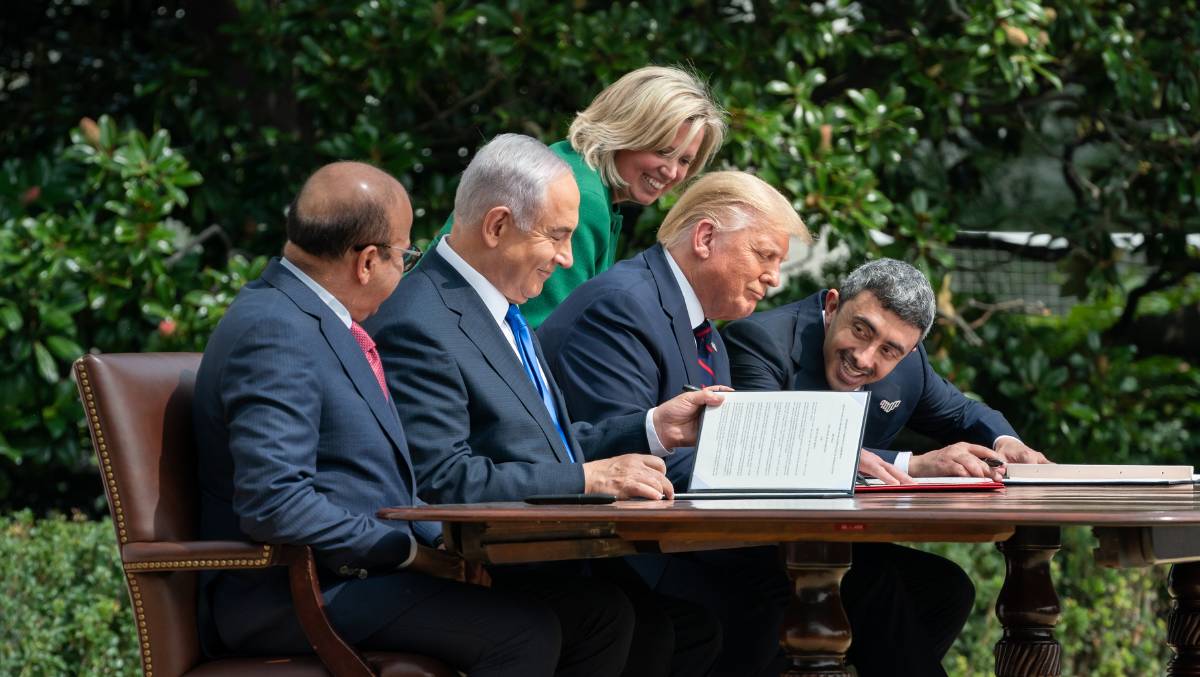The normalisation of relations with Israel by Bahrain and the United Arab Emirates was choreographed to help the domestically embattled Israeli Prime Minister Benjamin Netanyahu and US President Donald Trump. It essentially cements Netanyahu’s long-standing dictum of ‘peace for peace’ not ‘land for peace’, and Trump’s efforts to shore up a US–Israel–Arab front against Iran and its allies.
These developments are set to seriously harm the Palestinian cause and push Iran further into Russian and Chinese arms, and they are unlikely to bring stability and security to the turbulent Persian Gulf.
The Arab–Israeli conflict has led to three wars and the expansion of the Jewish state to a size three times larger than the area allocated under a UN partition plan 73 years ago. The likelihood of a sovereign Palestinian state materialising along the lines of the 1967 borders has never been slimmer. And a deeper and wider barrier has been created that will prevent meaningful cooperation for regional stability between Iran and the Arab kingdoms, except Qatar, which has been under a Saudi-led blockade since 2016 partly because of its desire to have a good working relationship with Iran.
Neither the UAE nor Bahrain has extracted anything from Israel that will help bring the Palestinians self-determination. They have effectively ended the Arab League’s approval at its 2002 Beirut summit of Saudi Arabian initiatives that offered recognition and peace to Israel in exchange for its withdrawal from occupied Arab lands, including the West Bank, the Gaza Strip and East Jerusalem, for a Palestinian state. The initiatives basically reflected UN Security Council resolution 242, adopted shortly after the 1967 Arab–Israeli War.
Read the article by Amin Saikal in The Strategist.

